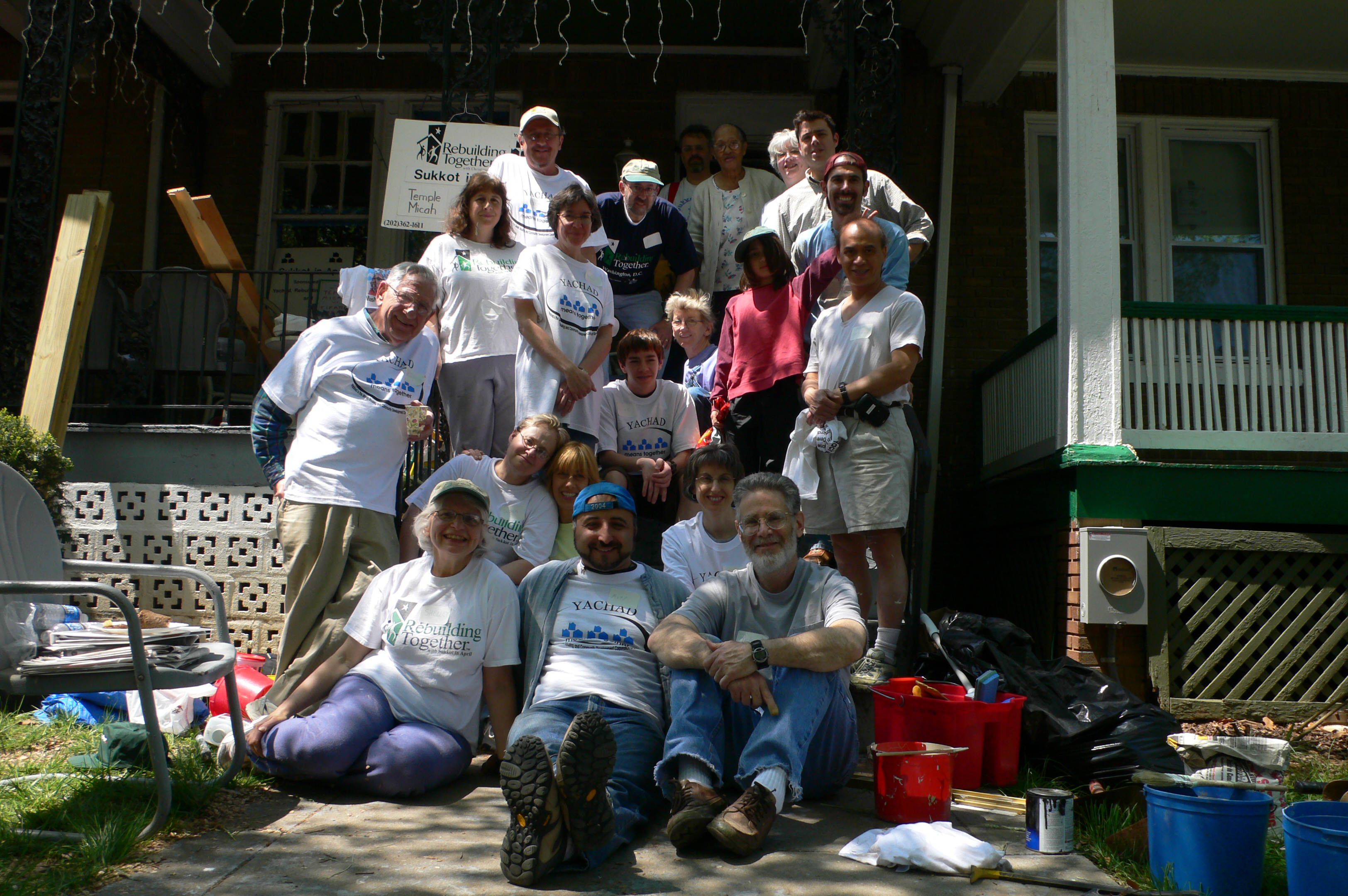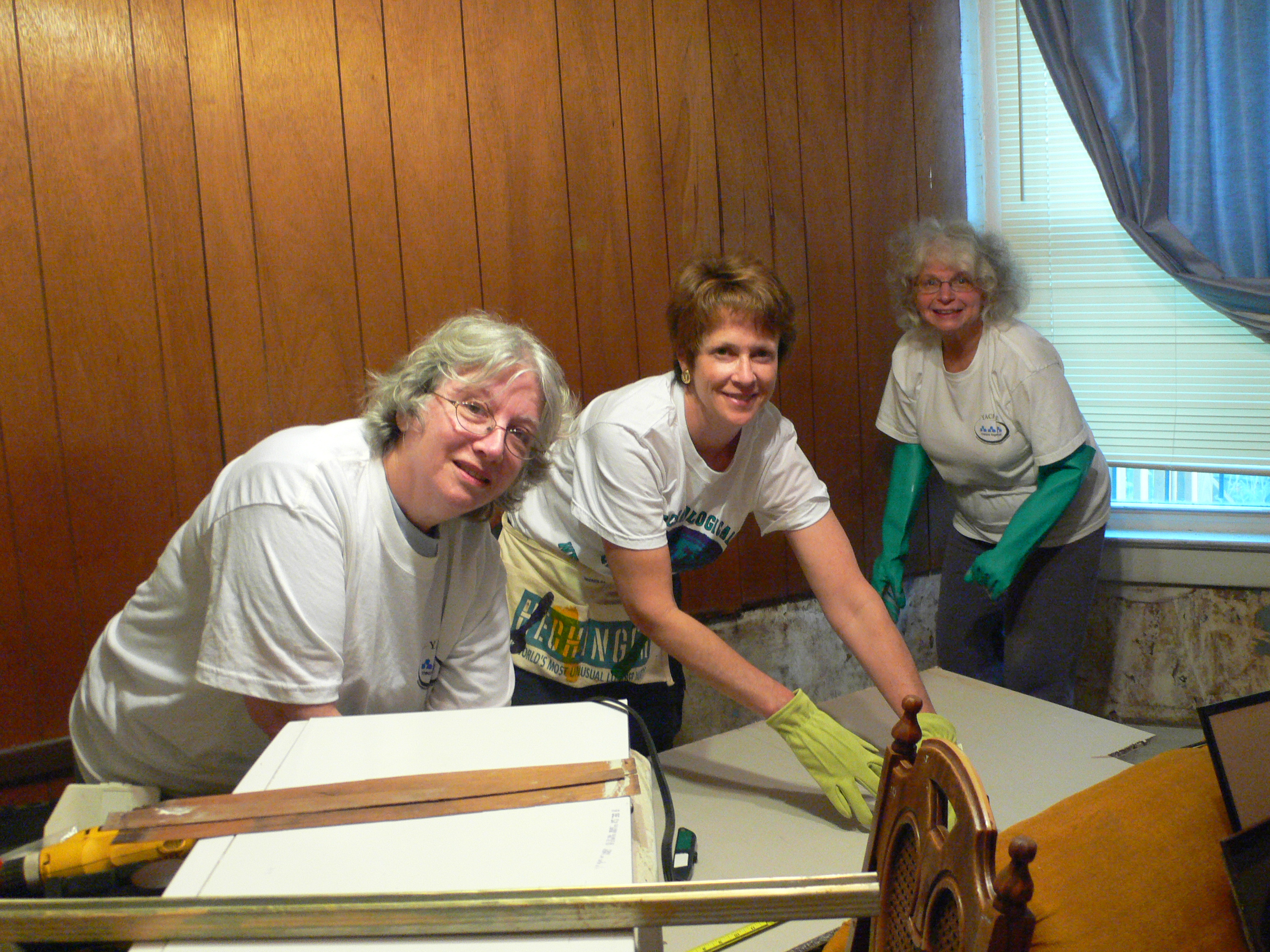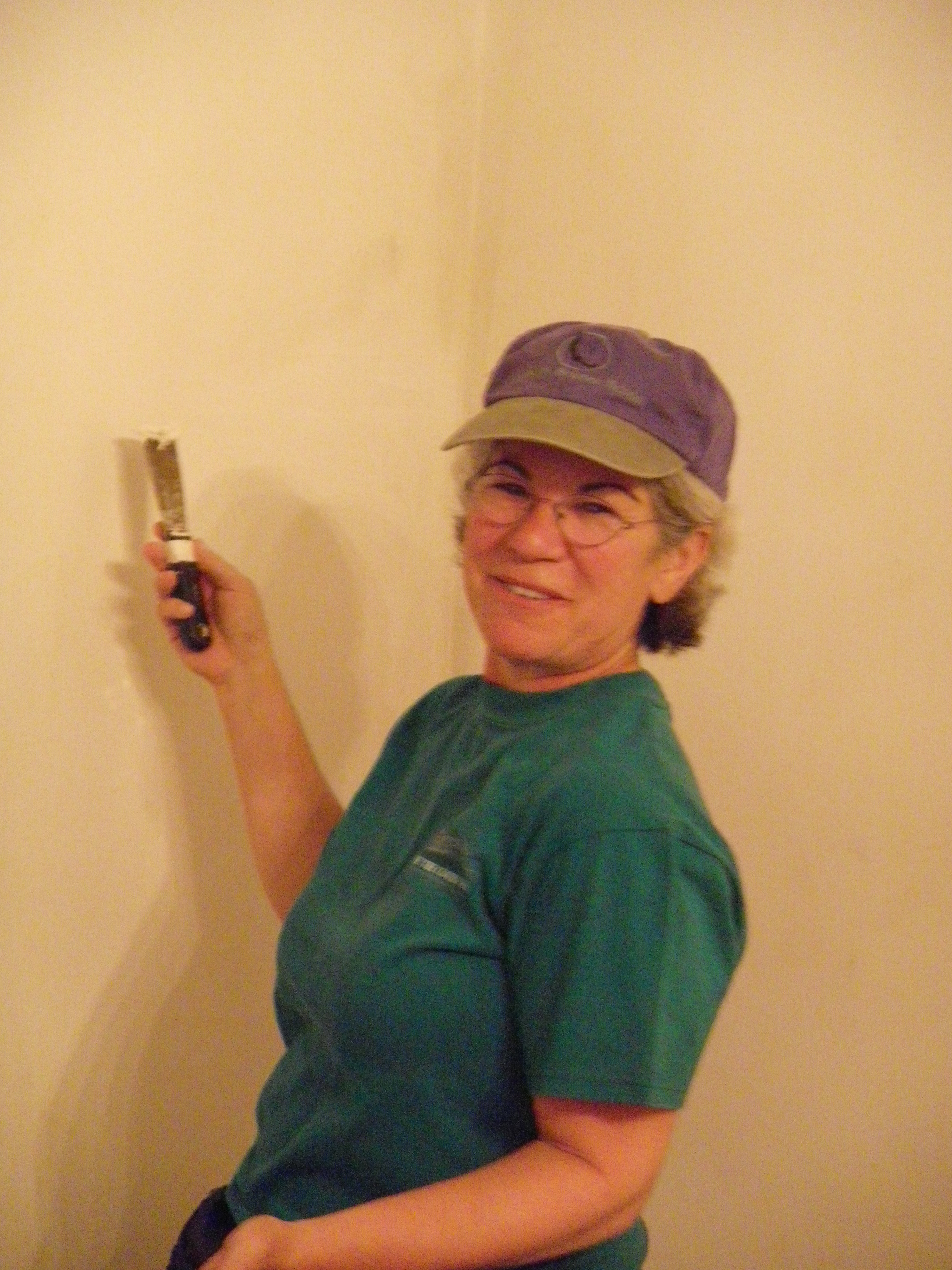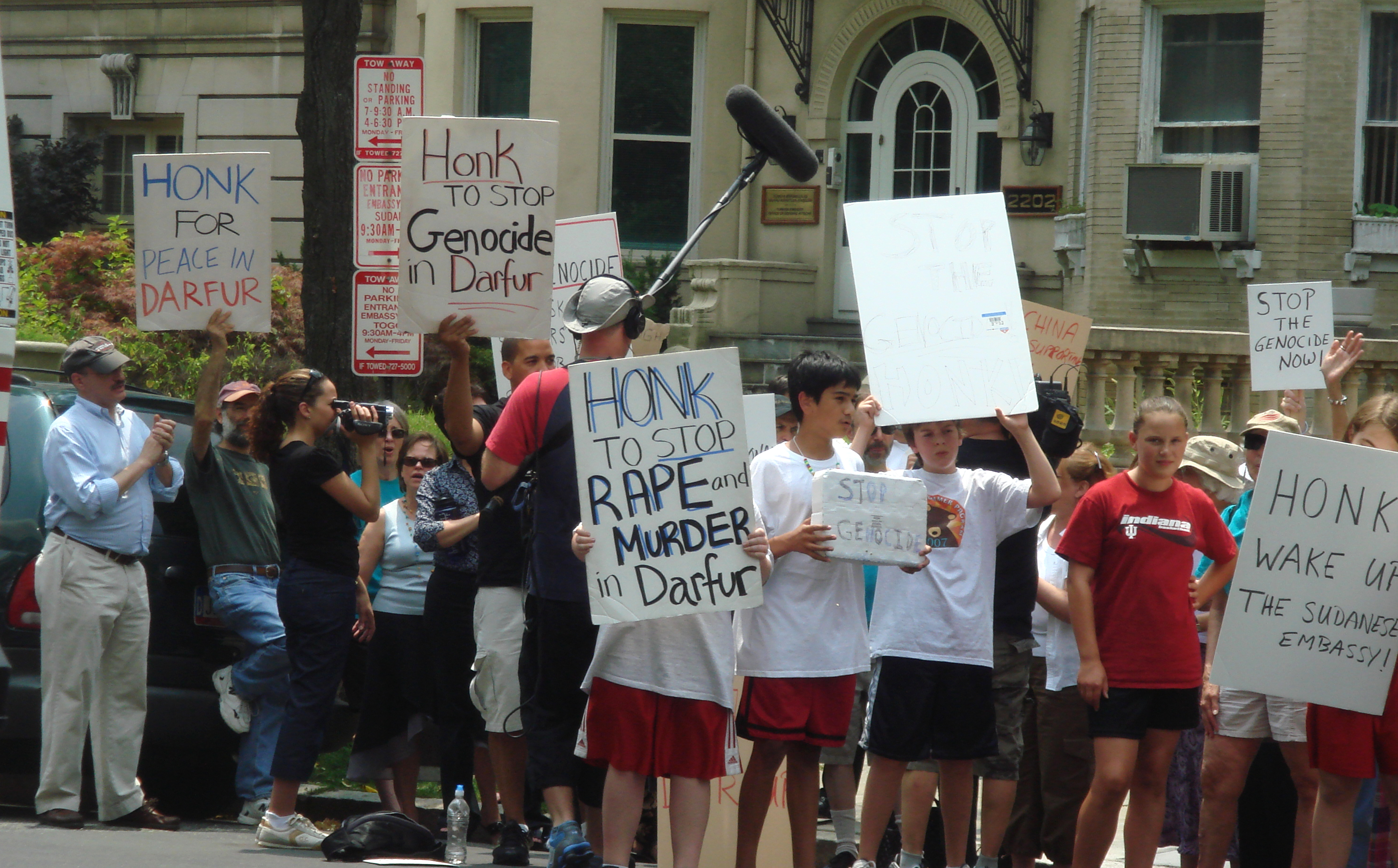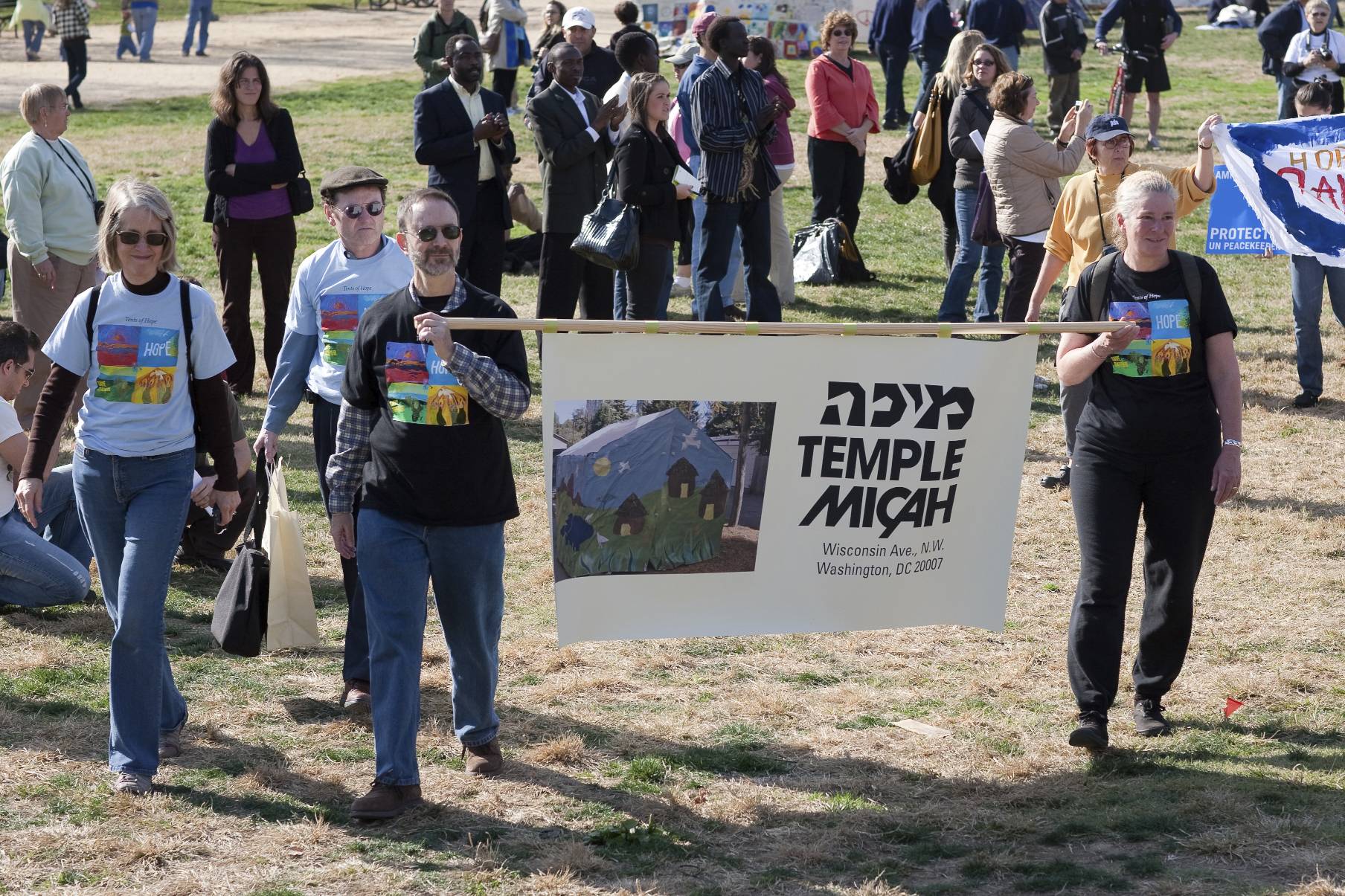From its earliest days in the 1960s, Temple Micah has been guided by a deep commitment to social justice. Early newsletters announced meetings on civil rights, called on members to tutor at-risk students in the Southwest DC neighborhood where the congregation began, participated in community-wide social justice projects, and took an active part in opposing the Vietnam War. For its first two decades, a Social Action Committee coordinated these activities.
When Rabbi Daniel G. Zemel arrived in 1983, he disbanded the committee and turned the entire congregation loose to engage in social justice. “My feeling was, if you want to do something, you don’t just talk about it. “You do it,” he explained in the May/June 2014 issue of The Vine. “You get the word out about it and go ahead and make it happen.”
Volunteers got together, for example, in 1990 to establish Micah House, a transitional home for women in recovery from substance abuse; in 1995 to participate in the first annual Sukkot in April, at which they helped rehab the dwelling of a low-income homeowner; in 1999 to inaugurate the annual Underwear Drive to provide new underwear to homeless individuals served by Friendship Place in Northwest DC; in 2014 to form a partnership with Sasha Bruce Youthwork, a DC non-profit that serves vulnerable youth; and many other projects in between.
Indeed, members were involved in such disparate activities that in 2013, at the recommendation of then-president Mary Beth Schiffman, the board set up a new committee called Tzedek (Justice) to undergird existing programs and facilitate new initiatives. Ed Lazere, currently Micah’s, was its first chair. He told The Vine that the committee would “solicit input from the Micah community about what else needs to be done” and help them do it. “It is not intended to get in the way of what’s happening now.”
Ann Sablosky recalls the history of Micah House
Sablosky explains how Micah House works
Sablosky on Micah House success stories
Temple Micah is one of five area synagogues that have participated in Sukkot in Spring (originally called Sukkot in April) since it was launched in 1995 by Yachad, Washington’s Jewish housing and community development organization. The reference to Sukkot invokes the act of building and refers to the practice in ancient Israel of erecting and living in temporary huts during their fall pilgrimage to Jerusalem. Spring is when most of the work takes place. Each year, temple volunteers help make necessary health and safety repairs on the dilapidated house of a needy homeowner, enabling the family to stay in the home and helping to upgrade the neighborhood.



